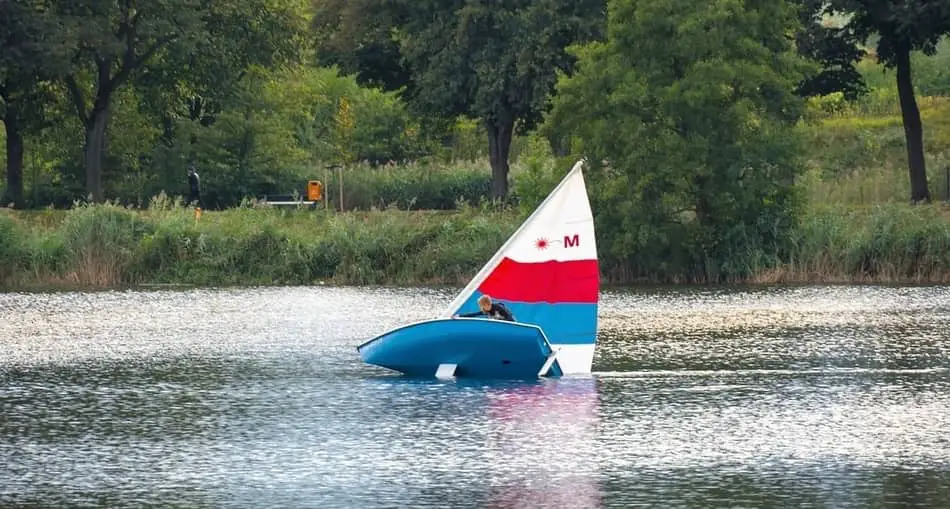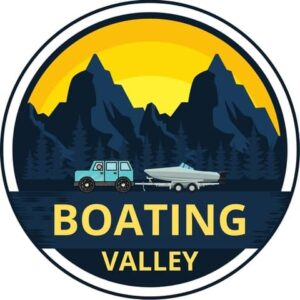Here are some tips to prevent capsizing a boat.
You can prevent capsizing a boat by not overloading or unevenly loading the boat and not driving the boat fastly in bad weather or rough waters. Sometimes, gale might cause a small sailboat to capsize. These are the essential things to do to prevent capsizing the boat.
These are some of the main reasons for a boat to capsize. Capsizing can happen to any type of boat regardless of the size. Often dinghy, kayaks, small sailboats, or any small boats capsize. These are the most common types of boats which capsize.

1. Don’t load the boat unevenly
Generally, this is divided into two types 1. Uneven loading 2. Overloading. Both of them will cause a boat to capsize.
Uneven loading or Overloading the boat is one of the essential causes of a boat to capsize. If you didn’t load the boat properly, then the balance of the boat will get affected, and eventually, the boat might tilt or capsize. So, load the boat evenly to prevent capsizing the boat.
Uneven loading means the weight inside the boat is not distributed properly. The weight can be anything it can be crew or equipment. Don’t keep everything only on one side of the boat (port side or starboard side or bow side or stern side), distribute it evenly inside the boat.
Still, you might think you can use trim tabs to compensate for that. But, trim tabs won’t help much in such cases of uneven loading. If the weight is less, then it is fine to some extent. If the weight is more, then you should be careful while boating.
Overloading means the weight in the boat is exceeded the limit. See the weight capacity of the boat and load the boat properly. If you don’t have the boat capacity sticker on the boat, then use the rule of thumb for calculating the weight.
Length of the boat times width of the boat divided by 15. Then, you will get how many members can sit in the boat. In this case, the weight of each person is the average weight (around 150 lbs)
Each year around 100 accidents and 50 deaths are happening due to overloading the boat. In 2018, 122 accidents, 54 deaths, and 64 injuries happened due to overloading the boat (source).
2. Don’t drive the boat fastly in bad weather or rough waters
This is a combination of all three (overload or uneven loading + high speed + bad weather).
There is a high chance of a boat to capsize if you are boating fastly in bad weather. In choppy or rough waters, the boat won’t move as smoothly as it moves in calm waters. So, the boat can tilt easily if you are driving the boat fastly in choppy or rough waters.
If the Overspeed is combined with uneven weight distribution or overloading, then the boat will tilt easily, which increases the chance to capsize. If the water is calm and there are no big waves, then you can drive the boat fastly (up to some extent), not during bad weather.
Especially in heavy winds, the sailboats (small sailboats not big sailboats) can capsize easily. For a small sailboat, weight distribution in the boat plays a key role. If the weights are uneven, the boat will tilt easily. Eventually, it may lead to capsizing a boat.
Over speed is one of the reasons for boating accidents. Each year around 250 accidents and around 30 deaths are happening due to driving fastly while boating. In 2018, 276 accidents, 25 deaths, and 231 injuries happened due to driving the boat fastly (source).
If you are boating in a gale, then you should be careful while turning the boat. There is a high probability of your boat to tilt while turning the boat. Especially, the people who are operating sailboats should be careful while turning the boat in a gale.
Check my article on Essential causes of boating accidents: Prevent them (don’t worry, it will open in a new tab) to know more about boating accidents.
What to do if your boat capsizes

Even though if you try to prevent capsizing the boat, it can happen if the weather is very bad or if something unexpected happens. So, you should be prepared well in advance, what to do when the boat capsizes.
If your boat capsizes, then try to stay afloat in the water by taking the support of the boat or any object. If you stay afloat in the water with any big visible object, then the coast guards or any other boaters will find you easily, rather than just floating in the water with a life jacket.
This is the essential step you should do if your boat capsizes. But, this step is to stay afloat and to be recognized or identified by the coast guards or any other boaters. Before this step, you need to do many things like contacting coast guards if you can.
1. Try to stay afloat in the water
Staying afloat in the water is the essential thing to do if your boat capsizes. You can take the help of any object that floats in the water like the boat or any other thing you find in the water. But, if the weather is bad or there are any big currents or waves, then it may be a little bit hard to stay afloat in the water. So, always wear a USCG approved life jacket boating.
Try to stay near the boat if your boat capsizes. If you stay near the boat or taking the support of the boat to stay afloat, then the coast guards can recognize or identify you easily.
- If you are using a small boat (less than 20 feet in length) like a dinghy or any small boats, then these boats will stay afloat in the water after capsizing. These boats won’t sink completely in the water. So, you can take the support of the boat to stay afloat in the water.
- If you are staying afloat in the water with the help of any big object, then the coast guards will recognize you quickly because if there is any big object floating in the water, anyone can identify the object quickly. Big objects (floating along with the boat) are visible than smaller objects (you alone floating with the life jacket on).
- If you are using a big boat (more than 20 feet in length), these boats will not stay afloat in the water after capsizing (chances are less). So, the coats guards may not recognize or identify you as quickly as they with the floating objects.
- So, if you are using any big boats, then be careful, and find anything that floats in the water. Always wear a USCG approved life jacket while boating to stay afloat if you didn’t find any big floating objects.
2. Signal or inform others
This is the second most essential thing you need to do if your boat capsizes. First, try to stay afloat in the water, then try to find the safety devices because if the boat capsizes, then you might not be able to find the devices. The safety devices can be a VHF radio (if you have one) or even a cellphone.
If there are any other boaters near you, try to signal them by shouting or waving the hands. If you can find any sound or visual signaling devices like horns or flares in the boat (after capsizing), then use them. Otherwise, wave the hands or shout.
If there is no one near you, then try to use the VHF radio or cell phone or any other devices. If you can find them after capsizing and if all those devices are still working, then use them to inform others or coast guards.
If you can’t find any devices (VHF radio or cellphone or any other devices) after capsizing, then wait or stay afloat near the boat and don’t move away from the capsized boat. So, people can see the big objects easily than small objects (you alone floating in the water).
Check my article on Safety tips for boating: A detailed guide (don’t worry, it will open in new tab) for boating safety tips.
Bottom line
You can do all these things if the water is calm, not rough or choppy. In rough waters, it may be a little bit hard to do all these things. So, to float in the water, always wear a USCG approved life jacket while boating. And keep all the safety equipment in the boat.
While buying any safety electronic devices for the boat (VHF or EPIRB or any carrying devices), make sure you are buying a waterproof device. You can use any safety devices (electric devices) in the water if they are waterproof.
Even in this situation (boat capsizing), you may not able to use any of the electronic devices if they are not waterproof. So, buy a waterproof device.
